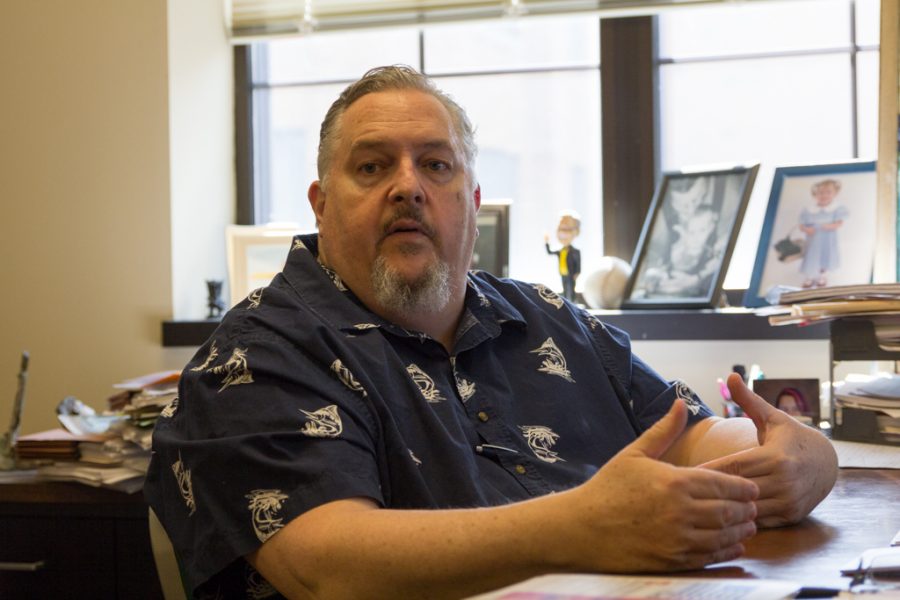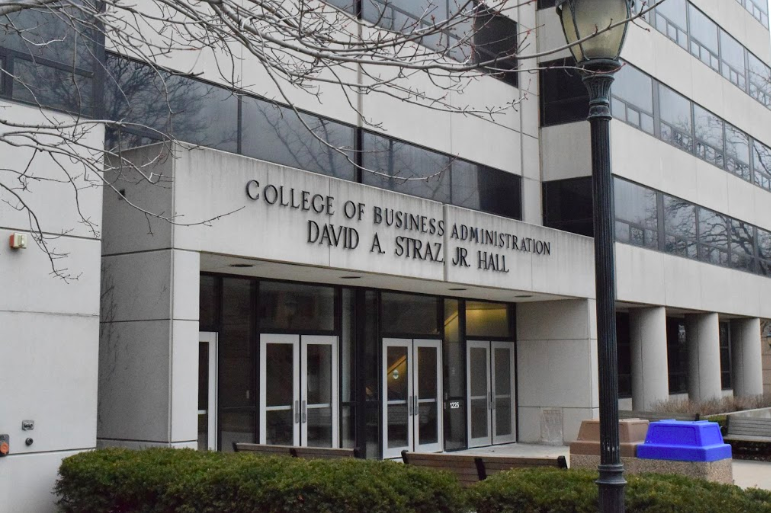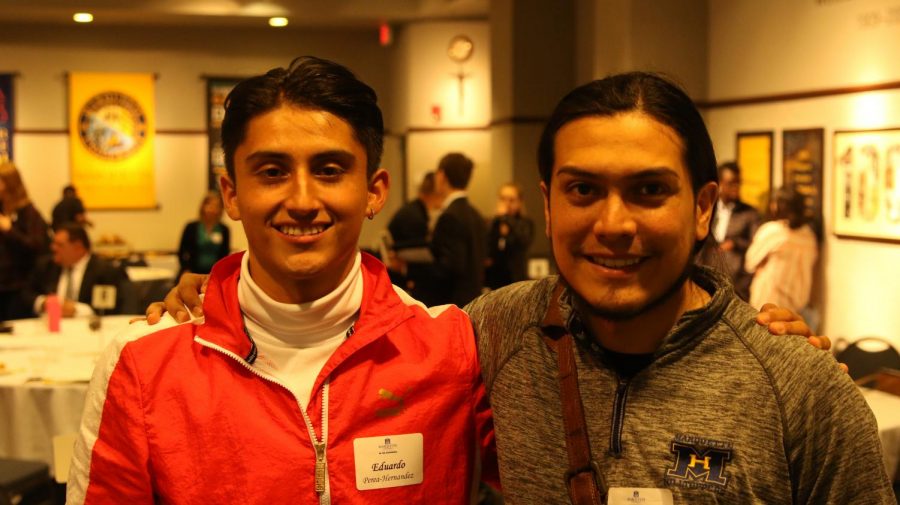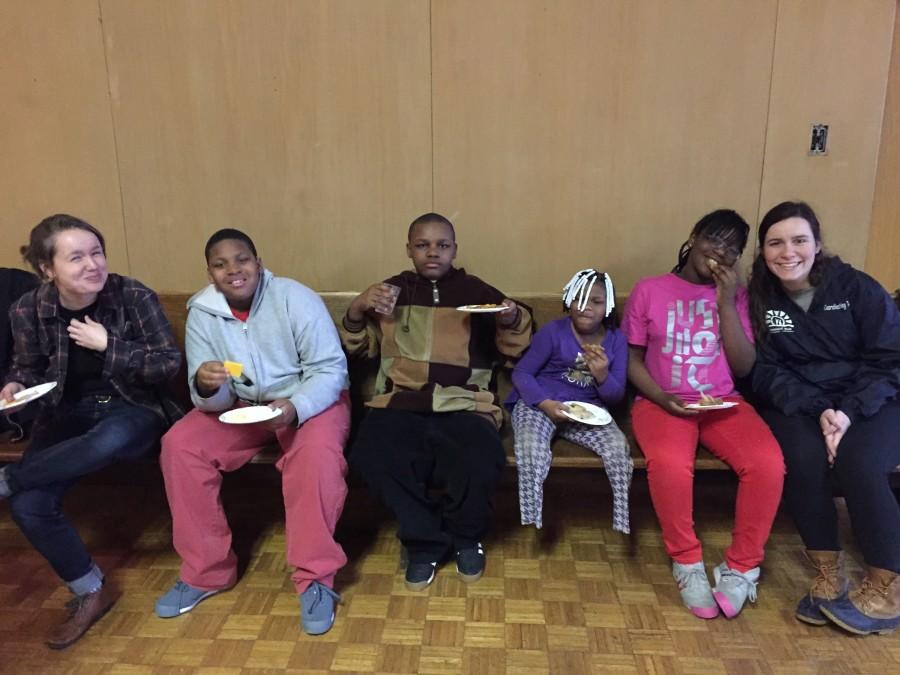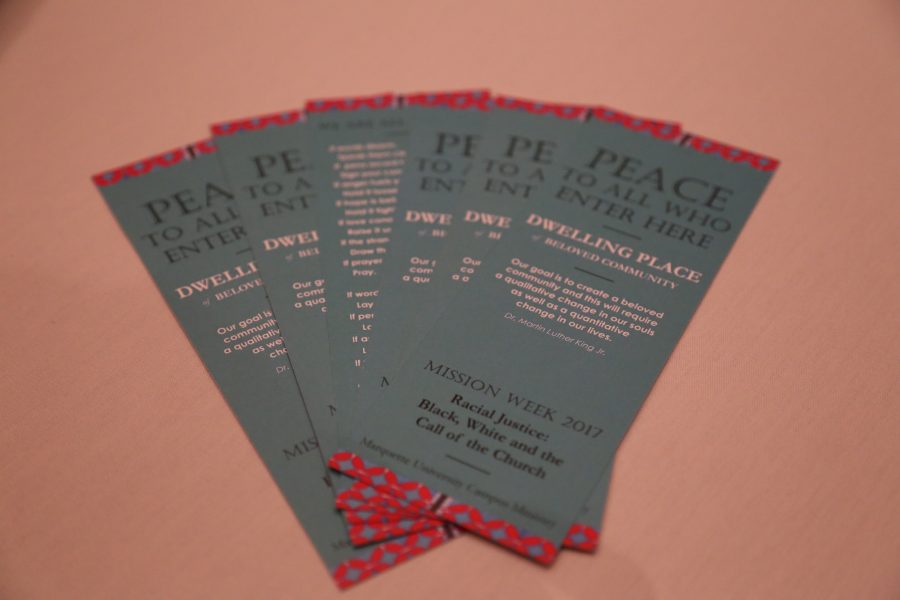Project RETURN will host a screening of the documentary “13th” in Cudahy Hall April 13.
The documentary covers the problem of incarceration and what inmates experience.
“A lot of people don’t understand how big of a problem mass incarceration has become and if it continues as it has been, we’re going to have a really big problem in the future, and we’re already experiencing that now,” Katie Schulz, a junior in the College of Arts & Sciences, said.
Ed de St. Aubin, an associate professor of psychology and board vice president of Project RETURN, said there will be panelists following the film, including history professor Rob Smith and, social and culture science professor Meghan Stroshine, local psychotherapist Anita R. Holliman and Alfonso James, a former inmate.
“A lot of it’s about the race-base to the incarceration dynamic and why African-Americans in particular are disproportionately arrested and sentenced,” de St. Aubin said. “We’re hoping to get a lot of community folks and Marquette folks. That’s a big part of the internship program that I like, too, is getting Marquette students out of that bubble that sometimes exists on this campus.”
Project RETURN, Returning Ex-incarcerated people To Urban Realities and Neighborhoods, was created in 1981. Project RETURN offers various services for those who have been incarcerated in the Milwaukee community, including employment services, alcohol and drug counseling, housing services and support groups.
“We exist to help men and women returning from incarceration with their re-entry needs,” Wendel Hruska, executive director for Project REUTRN, said. “Everything we do is on a one-on-one basis, it really depends on the individual and what they come to us needing help with is what we’re going to assist them with.”
Hruska said the film articulates and goes through decades within the 20th century from slavery to Jim Crow laws, the Ku Klux Klan, the war on drugs and the rise of the prison population that ensnares people on low-level drug offenses.
“If we do not prepare them for re-entry, more times than not they’re going to go back to what they know: survival,” Hruska said. “We need to be able to make sure they have the necessary tools and resources at their disposal so that they don’t have to go back to criminal thinking patterns or addictions.”
Marquette University students have been working with Project RETURN since Hruska started working at the organization 19 years ago.
De St. Aubin said the organization started in a basement of Cross Lutheran Church, less than a mile away from campus.
“Undergraduate students used to walk over and do GED tutoring and they would have meals together, so there was a lot of fellowship and camaraderies, and that’s kind of continued,” de St. Aubin said.
Though service learners have gone through Project RETURN for years, Hruska said an internship program began around seven or eight years ago. Students can enroll in a class through the psychology department and work at an organization for the entire academic year, spending eight hours in the field each week and one hour with de St. Aubin to reflect on what they learned.
De St. Aubin thought of the internship program after he joined the board about 10 years ago.
“I got to know what (Project RETURN) were doing, and it occurred to me that they were very much aligned with Marquette’s social justice mission and reaching out to folks who are marginalized,” de St. Aubin said. “There’s only so much you can do in a classroom, so I started to conceptualize this internship program where students could put some hours in the field, and we would meet back on campus and talk about psychological aspects of race relations and changing one’s life around and criminal thinking and then it grew from there.”
De St. Aubin said when the program started, he began with two interns. Now, he said there are 19 students signed up for the next academic year. He called it a “very high impact learning experience.”
“You can really get immersed in the re-entry world and understanding the issues surrounding re-entry,” Hruska said. “Students learn a lot more of what the actual struggles and issues are that individuals returning from incarceration face.”
Schulz is an intern with Project RETURN.
“We get to visit prisons,” Schulz said. “That was one of the coolest things we’ve done so far … just getting to talk to the inmates while they’re there and hear about what they want to do when they get out and letting them know we’d be a good resource for them.”
Hruska said interns have participated in support circles and other programming, as well as worked with staff on specific projects happening within the organization. While the tasks of service learners are “ever-evolving,” what the interns do is much more in-depth.
“Because it is a little bit more time a week, and for a more extended period of time, the interns really get the full breadth of what we do as an organization, as well as much more intricate details,” Hruska said.
De St. Aubin said two or three weeks of orientation occur before an intern starts.
“If you do the whole year, the depth of that relationship is way more significant, so I really like to do that,” de St. Aubin said.
De St. Aubin said students are getting exposed to things they would not on campus.
“They’re matched up with people, with Project RETURN, who have been gang members, many have been in prison, so they’re forming these kind of relationships that are pretty phenomenal,” de St. Aubin said. “By the time they’re done, the relationships they built are deep, they’re being invited to picnics and weddings, and they’re meeting people’s newborns.”
De St. Aubin said there’s a reciprocal relationship between the student interns and the agencies, in which the students benefit, but they also contribute to agencies work and missions using their skillsets.
He also said students have come to him saying the experience pushed them out of their comfort zones, and it’s been career-changing.
“Even if it doesn’t impact their career, it definitely changes their attitudes and thoughts, whether it’s in race issues or stigma around inmates,” de St. Aubin said. “It’s the idea that they’re going to have a ripple effect.”
Schulz said she hopes to work in prisons when she is older and said de St. Aubin encouraged her to apply for the Project RETURN program.
“I’m hoping to go to law school and get more involved in prison legislation, mostly because of what I’ve seen here in Milwaukee and the huge amount of segregation,” Schulz said.
Hruska said policymakers often cite a tight budget asking for resources for previously incarcerated citizens. Hruska said he wants people to recognize that the vast majority of people who are incarcerated today in the state of Wisconsin are going to be returning to the community.
“We are only beginning to recognize the true nature and the true impact that mandatory minimums and tough-on-drug crime laws have had on our country, which have been detrimental,” Hruska said.

